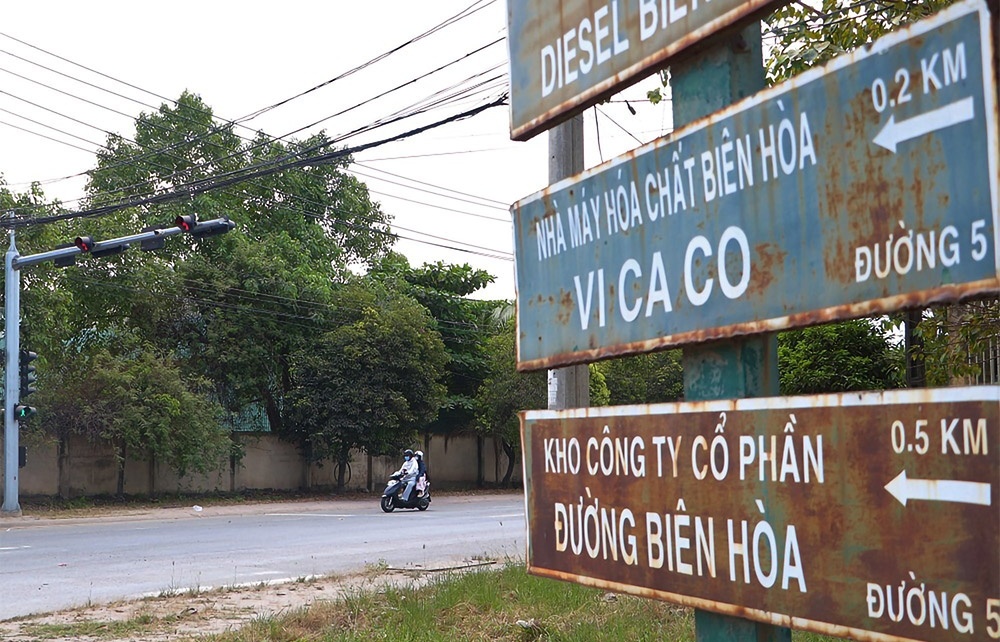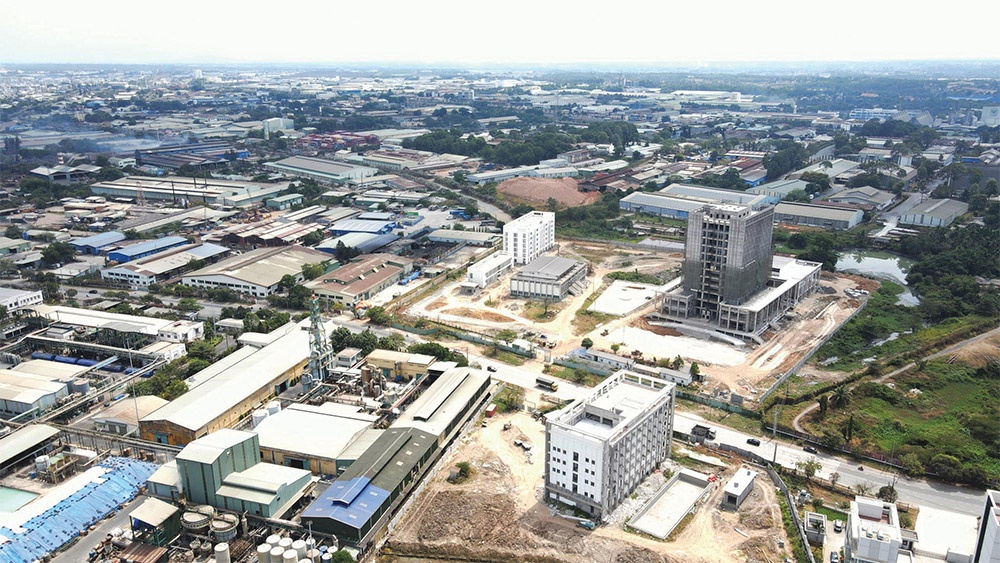Tightened credit expected to stop real estate bubble
 |
| A view of Linh Dam New Urban Area. Loans pouring into the real estate sector are expected to be tightened. - VNS Photo Doan Tung |
In a draft document issued by the State Bank of Viet Nam circulated for the opinion of financial institutions, the risk index of receivable lending for real estate and securities might be raised from 150 per cent (the lowest level) as stipulated in Circular No 36, to 250 per cent.
Maximum ratio of short-term funds used for medium and long term loans might be adjusted from 60 per cent to 40 per cent.
The Ministry of Construction's Department of Housing and Real Estate Market Management reported that as of November 2015, outstanding loans invested in the market was up to VND375 trillion (US$16.67 billion), a surge of 20 per cent compared to the figure of December 2014. This is the result of the Circular No 36 which was in effect from February 1, 2015.
Three activities which have the highest rate of increase in loans are, buying the right to use land with 36.3 per cent, building new urban areas with 10.7 per cent, and investing in other real estate businesses at 11.2 per cent.
The proposed amendments imply the central bank's concern about the overheating of the real estate sector, according to a report of the Ho Chi Minh City Securities Company.
The new rules, if applied, would have a negative impact on developers such as Novaland, Vingroup, Dat Xanh, and Nam Long as well as their customers, it said.
Lenders that are major players in the mortgage market, such as ACB, Sacombank and Techcombank, would also be affected, it said.
This change would not affect families and individuals who buy houses to live under the scheme of pay-by-instalment.
Previously, experts also raised concerns over the real estate "bubble" which might occur in the future if the lending for property investments was not controlled.
Expert Nguyen Tri Hieu told news website ttvn.vn that the warm-up of the real estate market could help deal with bad debts, but in fact, the market was still facing difficulties as the volume of inventories was still high.
Therefore, commercial banks should not only speed up the lending, but also need to strictly supervise the quality of loans as well as the sources of debt servicing, he said.
It is the time for the central bank to tighten credit in the real estate market, he stressed, while adding that property businesses should prepare financial resources themselves to avoid over-reliance on the banking system.
What the stars mean:
★ Poor ★ ★ Promising ★★★ Good ★★★★ Very good ★★★★★ Exceptional
Latest News
More News
- Nam Long Group gears up to capture market (April 19, 2024 | 10:57)
- Rapid law implementation may propel market fortunes (April 17, 2024 | 08:43)
- Nation urged to build on eco-IP model (April 16, 2024 | 10:22)
- Domestic steel demand expected to rebound amid warming real estate market (April 12, 2024 | 10:31)
- Implementation of new land laws must benefit investors (April 10, 2024 | 09:17)
- Apartment hikes hint at speculation return (April 09, 2024 | 10:14)
- Infrastructure focus sets stage for real estate bonanza (April 03, 2024 | 10:14)
- Nam Long Group maintains top ten position in real estate investment ranking (April 03, 2024 | 08:00)
- Hospitality and real estate sectors strive for sustainable growth (March 29, 2024 | 16:12)
- Gamuda Land starts construction of Eaton Park (March 28, 2024 | 16:40)

















 Mobile Version
Mobile Version